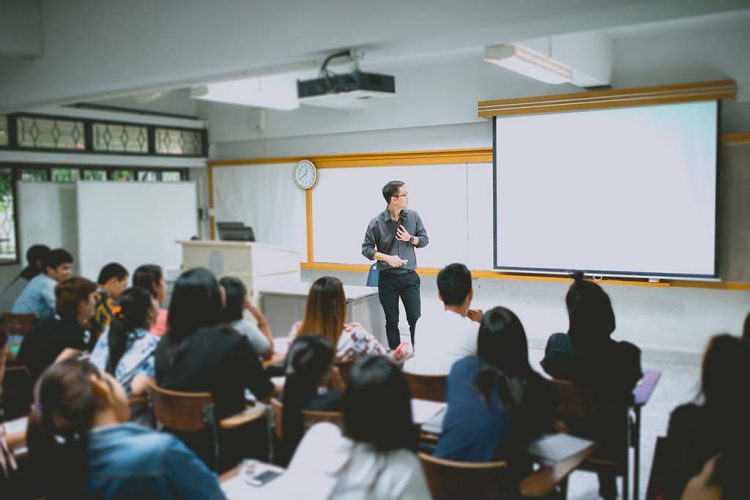Improve Your Child’s Performance with Primary Science Tuition Singapore
Improve Your Child’s Performance with Primary Science Tuition Singapore
Blog Article
Discovering the Various Training Methods in Main Science Education Today
Inquiry-based discovering, hands-on experiments, and the integration of technology are redefining just how instructors engage young minds. Additionally, collaborative approaches and distinguished direction are being employed to cater to the diverse demands of trainees, enhancing both engagement and understanding.
Inquiry-Based Understanding
Inquiry-Based Knowing (IBL) is an instructional method that motivates students to discover clinical concepts with wondering about, investigation, and hands-on experimentation. This technique emphasizes the duty of pupils as energetic individuals in their understanding, advertising critical thinking and analytical skills. By involving with real-world questions, trainees become curious and inspired, which boosts their understanding of clinical principles.
In IBL, instructors act as facilitators, guiding students as they navigate their inquiries instead than delivering info directly. This student-centered strategy enables distinction, accommodating numerous discovering designs and paces. Trainees establish abilities in formulating theories, creating experiments, and analyzing data, which are essential for clinical literacy.
Additionally, IBL fosters cooperation among students, urging them to share ideas and searchings for. This cumulative query promotes social skills and a sense of area within the classroom. The procedure of query motivates strength, as pupils find out to accept failure as a stepping stone toward understanding.
Hands-On Experiments
Hands-on experiments are an essential part of reliable scientific research education, matching the concepts of inquiry-based understanding. These experiments enable trainees to engage straight with clinical principles, promoting a much deeper understanding via experiential learning. By controling products and observing outcomes, young learners can comprehend abstract theories in tangible means.
Such activities advertise crucial reasoning and problem-solving skills, as trainees hypothesize outcomes, conduct experiments, and examine outcomes. This process encourages them to ask inquiries, refine their understanding, and establish a clinical state of mind. Furthermore, hands-on experiments can be customized to varied learning styles, making sure that all pupils have the opportunity to engage meaningfully with the content.
Moreover, hands-on experiments typically urge partnership among peers, promoting team effort and interaction skills. Operating in teams enables trainees to share ideas, review findings, and gain from each other, which boosts their overall academic experience.
Integrating hands-on experiments into the key science curriculum not just enriches the discovering environment yet also grows a long-lasting passion in scientific research. By actively taking part in their education and learning, students are more probable to establish a passion for scientific inquiry that prolongs beyond the classroom.

Technology Assimilation
Incorporating technology right into primary science education and learning has come to be increasingly necessary in promoting pupil interaction and improving finding out results. Making use of digital tools, such as interactive simulations, virtual labs, and instructional software, supplies trainees with chances to explore scientific ideas in cutting-edge methods. These resources assist in a much deeper understanding of intricate topics by permitting students to imagine and adjust variables that would certainly be unwise in a typical class setup.
In addition, innovation combination urges personalized finding out experiences. Students can advance at their very own pace, taking another look at difficult concepts through multimedia sources, which accommodate different learning designs. This versatility not only sustains individual development however likewise grows a sense of freedom in learners.
In addition, technology Homepage acts as a bridge to real-world science, linking students with current research study and specialist contributions. Access to clinical journals and on-line databases broadens students' perspectives on scientific inquiry and fosters critical believing skills.
Collaborative Discovering
Collective understanding plays an essential function in key scientific research education and learning by fostering teamwork and interaction skills among trainees. This approach motivates students to work with each other, share expertise, and participate in analytical, which enhances their understanding of clinical ideas. By taking part in group activities, trainees learn to verbalize their concepts, listen to varied point of views, and bargain remedies, all of which are necessary abilities in both real-world and scholastic contexts.

Research study suggests that collective discovering can lead to raised motivation and engagement in scientific research topics, as trainees discover satisfaction in shared experiences (primary science tuition Singapore). Furthermore, this technique prepares pupils for future joint endeavors, equipping them with the abilities essential for effective teamwork in greater education and learning and expert environments. Ultimately, welcoming joint understanding in main scientific research education can significantly enrich the discovering experience and promote a much deeper understanding of clinical questions
Separated Direction

Differentiated direction can materialize in various methods, such as differing the material, processes, or items of learning. For example, educators may utilize tiered jobs that offer differing levels of intricacy, allowing pupils to work at their corresponding preparedness degrees. In addition, flexible grouping methods can facilitate collaboration amongst pupils with different abilities, promoting peer knowing.
Evaluation plays a crucial role in this approach, as it informs instruction and helps educators understand each student's unique requirements. Developmental assessments, such as quizzes and observations, can assist instructors in readjusting their techniques to boost finding out outcomes. primary science tuition Singapore. this link Inevitably, by carrying out set apart direction in primary science education, instructors can grow an extra reliable and equitable knowing setting, equipping all pupils to reach their full capacity in understanding scientific phenomena
Verdict
In recap, the diverse training methods in primary science education, including inquiry-based learning, hands-on experiments, innovation integration, collective learning, and distinguished instruction, jointly add to a much more effective learning atmosphere. These techniques advertise essential reasoning, problem-solving skills, and a much deeper comprehension of scientific concepts. By applying these strategies, teachers can produce engaging and encouraging classrooms that deal with the different demands of pupils, ultimately promoting a lifelong passion in scientific research and improving scholastic accomplishment.
Inquiry-Based Discovering (IBL) is an instructional method that encourages students to check out clinical concepts via questioning, investigation, and hands-on testing.Collaborative discovering plays an important duty in primary science education and learning by promoting team effort and interaction abilities amongst students.Research indicates that collaborative understanding can lead to enhanced motivation and engagement in science topics, as trainees discover pleasure in common experiences.In promoting an inclusive knowing setting, separated instruction emerges as an essential method to fit the diverse requirements and capabilities of pupils in primary science education and learning. Eventually, by implementing separated direction in key science education, educators can cultivate an extra fair and reliable discovering setting, encouraging all trainees to reach their full potential in understanding clinical sensations.
Report this page